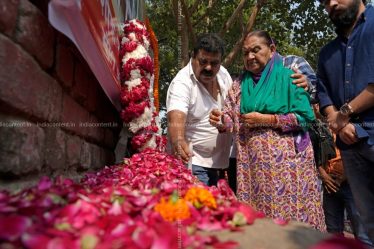
The Reserve Bank of India has put the operations of Punjab and Maharashtra Cooperative Bank, also known as PMC Bank under directions for a period of 6 months due to some alleged irregularities. This means a restriction on the bank’s functions like lending and withdrawals by customers; in fact withdrawals by depositors have been capped at 1000 rupees per account. Bank also cannot grant or renew any loans and advances. As the news spread, the depositors gathered around outside the branches of PMC Bank.

PMC BANK CONTROVERSY:
PMC Bank formed in 1984 is one of the largest cooperatives of Maharashtra where now RBI has restricted their operations under the Section 35A of the banking regulation because of the irregularities like they may have given fraudulent loans and did not disclosed the net NPAs. The biggest issue that the depositors are going to be facing is how to meet the daily expenses specially those customers that own only one bank account with PMC Bank. Following the huge public outcry, RBI hikes withdrawal limit to Rs. 10,000 from Rs. 1000.
Generally the banks are placed under directions due to exceptional and extra ordinary circumstances. The PMC bank was found to be underreporting its NPAs. It is said of granting loans to real estates and housing projects. The NPAs have been higher than the previous year and there has been asset-liability mismatch. Looking at the figures, the last account of 31st March looks fairly good. The NPAs were all 2% up from 1% the previous year. And there has been a healthy growth in the profit. It shows a 16% rise in the net profit as well.
PMC was not a loss making company as of March 31st. But if some irregularities have been disclosed after that it is possible that the previous accounts are not very accurate. Normally these restrictions come in and there is an insurance of 1 lakh rupees for small depositors. But the depositors’ don’t get this money immediately as the bank tries to pull itself from the trouble. When it is under RBI restriction and if it is back on its feet, people will not come and ask for money back. In case of liquidation too, small depositors get preference. Apart from putting limit on money withdrawal, RBI also restricted fresh investments and borrowing of fresh funds and any payments against any liabilities.

It is being reported that loan of Rs. 2500 crore have been sanctioned to the bankrupt real estate firm HDIL. The PMC Bank auditors did not justify the loan to HDIL as an NPA. According to PMC bank MD, Joy Thomas the depositors’ money is safe and all their loans and advances are fully secured. Since PMC is a cooperative bank which comes under State governments and are not underwritten by the tax payers, the small depositors did not need to worry.
Buy more images of bank on https://www.indiacontent.in/search-topic/bank
WHY PMC BANK RESRICTED: ISSUE WITH RBI
In terms of Banking Regulations Act which is applicable to cooperative banks, the Reserve Bank of India supervises and regulates cooperative banks. The RBI ensures that the regulated entity is solvent at any point of time which means that the bank is in a position to pay its present and future depositors in full as and when the claim arises. It keeps an eye in the bank’s (here, PMC) capital adequacy, asset quality, management strength, earnings, liquidity. The RBI maintains this process both on and off site through surveillance mechanisms.
Whenever it is found that the affairs of the bank are conducted in a manner detrimental to the interests of the depositors then RBI initiates certain measures to put the bank on the right track. Likewise RBI has put restrictions on PMC operations in order to protect the depositors’ interest. Several cooperative banks have escaped the scrutiny they deserve because politicians of every political party want to hold on to these cooperative banks and guard them. It won’t be wrong to say that a lot of politicians may have deep involvement in such banks. Seeing into the current status of PMC bank there are two options left one being merging with another bigger bank and second going for liquidation. Even if the bank loses its license, Deposit Insurance and Credit Guarantee of India will reimburse up to Rs. 1 lakh per depositor.

For the depositors it’s not only about the frugal withdrawal limit but the bigger question is what happens to their deposits and assets in the form of FDs and other small savings schemes. The bank has 137 branches spread across Karnataka, Gujarat, New Delhi, Goa and Madhya Pradesh apart from Maharashtra with a deposit base of Rs. 11,617 crores as of March 2019.
Though it is RBI’s duty to save the depositors’ interests, the State government has been accused of time and again of being lapse in monitoring the financial conditions. Moreover things become even more complicated as the audit is done by the State governments. Given that the regulator has extended its restrictions on 4 cooperative banks in September, there’s a need to tweak the laws and ensure that the cooperative banks come under the purview of the RBI.
You can purchase various other content images from the https://www.indiacontent.in
